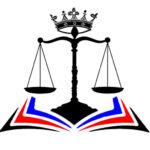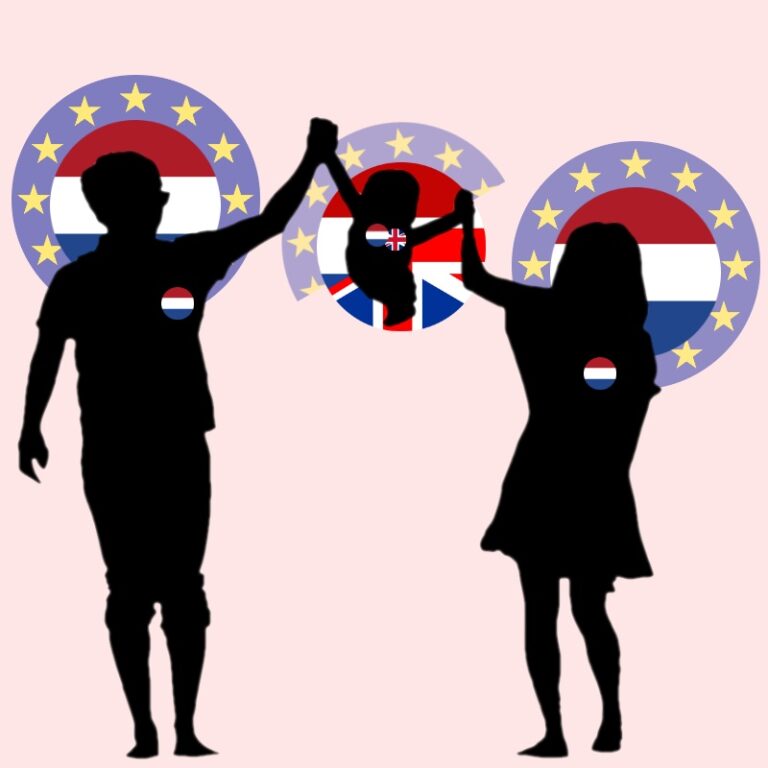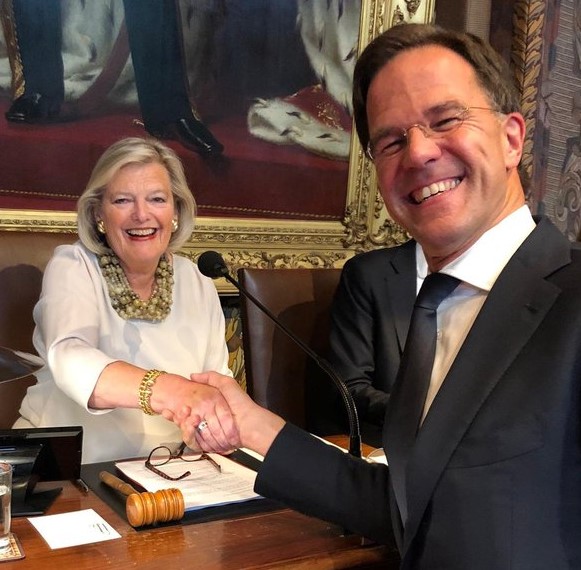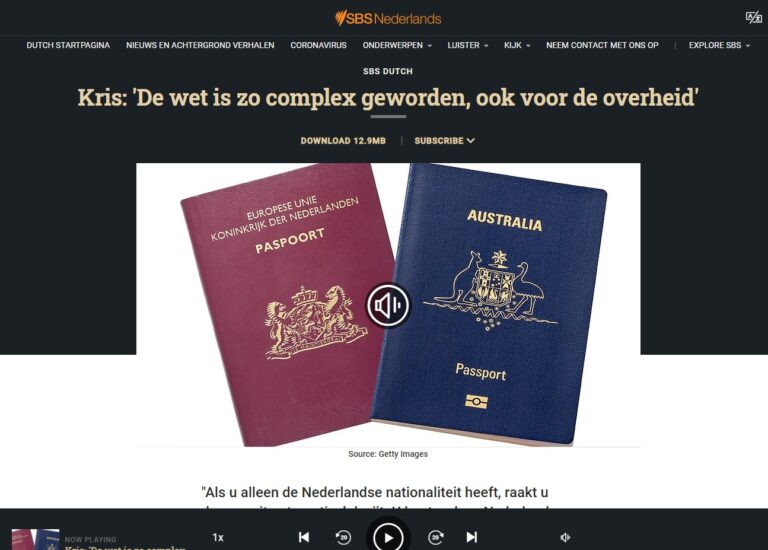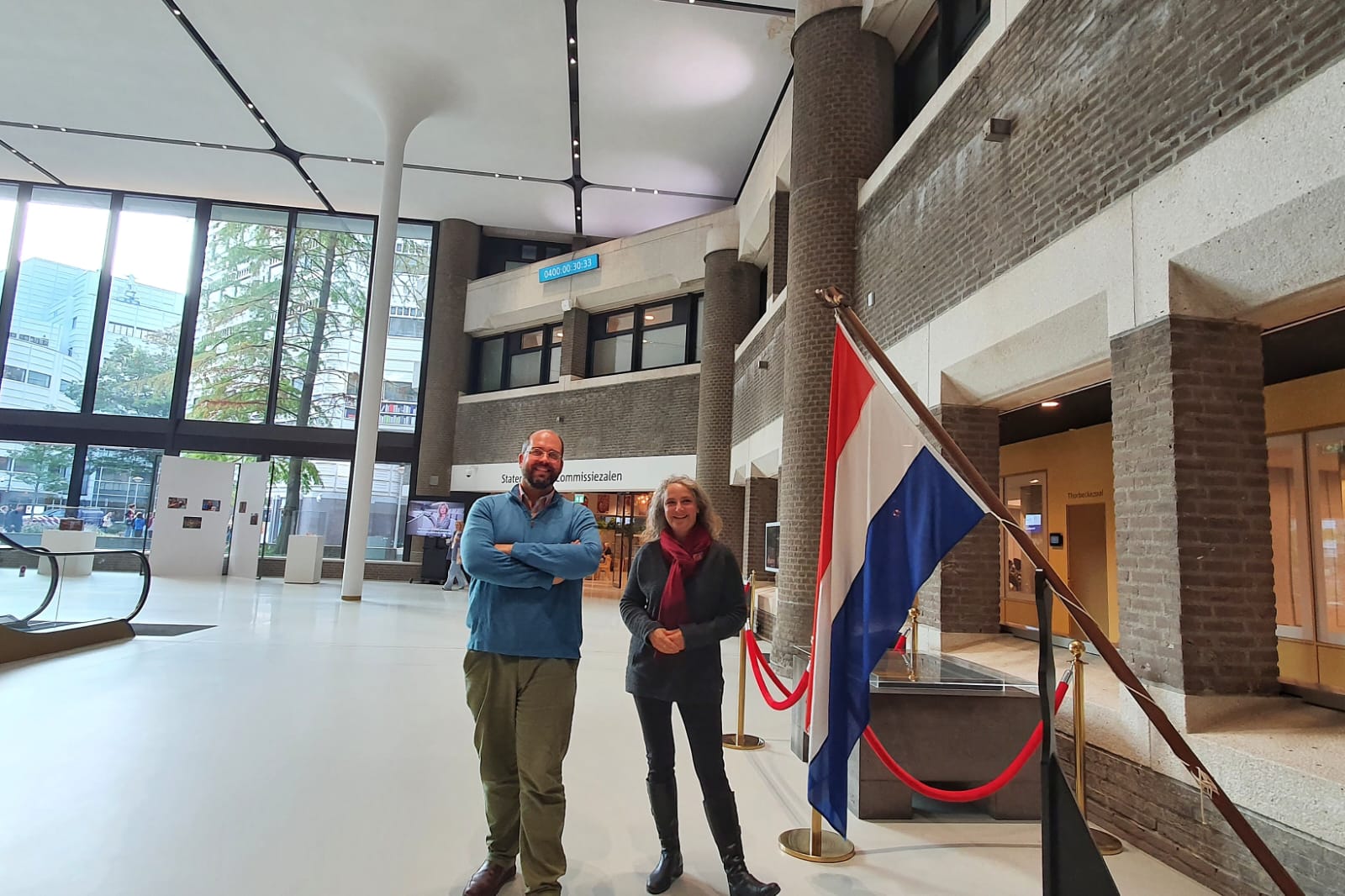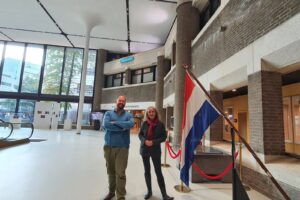
Shortly before the elections we see some action regarding the nationality law. The GOED Foundation and Kris von Habsburg (of Habsburg Legal Services) have often knocked on politicians’ doors. For example, last year we visited several of the major parties to explain where things are going wrong with the legislation and how the law affects people in real life.
At the time it was made clear to us that most politicians did not consider modernization of the legislation feasible. One of the largest parties stated that it was divided on this. This is because voters often relate nationality to foreigners. According to the politicians, modernization was therefore not really feasible. Most parties that were in favour also did not really want to publicly support this.
Modernisation of the nationality/citizenship law by allowing other nationalities
But now, just before the elections, there is movement. D66, together with GL/PvdA, has taken an old bill to modernise the law off the shelf and dusted it off. The timing with regard to the elections is perfect. Because it is now that parties must show their true colours and determine their positions. Especially because there will probably be coalition negotiations again in which we would like to see this subject included. After it of course still has to be realised.
The subject can no longer be ignored. The so-called Tjebbes ruling (2019) has given the Netherlands a clear signal that the automatic loss of nationality is not proportionate. And the Netherlands stands in stark contrast to the rest of the EU, and modern countries worldwide. Most have cancelled and written out of their legislation restrictions to another nationality since after the Second World War. With the UK being one of the first in 1948 to the Scandinavian countries being some of the last, the world has changed and modernization is needed. The Netherlands would therefore do well to abandon the old colonial and feudal single nationality principle. Anyway, for Dutch people abroad this is now almost old news. What does this really mean?
A bill that is really pushed through will have to be discussed in parliament and the upper house. The politicians and government cannot then prevent the discussion. Ultimately, however, it must be voted on by the parties concerned. And some agreements from any coalition negotiations should also be adhered to. Unfortunately, the latter does not always happen.
The 2017 Coalition Agreement between the VVD, CDA, D66 and ChristenUnie factions stated that the legislation would be modernized. The agreement itself fell short in this regard, but even that did not happen. The 2021 Coalition Agreement between VVD, D66, CDA and ChristenUnie was a recognition of the “undesirable” problem. A draft proposal that was criticized by us and many others and disappeared, never arrived at parliament. In between there was Brexit and the 35130-(R2119) Brexit emergency law was passed but the Government decided not to activate it or use it.
Dusted off and updated bill
The dusted-off bill 34 632 (R2080) dates from 2016 and is a very reasonable proposal. But in the meantime time has passed and there have been various developments. This proposal has therefore been updated and, in our view, is quite good. Unfortunately, the new proposed Option to repair lost Dutch citizenship is still limited to those who lost their nationality after the April 1st joke of 2003. We see that this date corresponds with the disappeared draft proposal from the government itself.
Recognition for former Dutch citizens
We would like to see recognition for the first wave of Dutch people who often lost their nationality/citizenship unconsciously and unintentionally. And so, we propose that the date 01 January 1985 be used. It can be argued that later a temporary option was already possible for these people. But just as the legislative changes of 1985 and 2003 were virtually unknown, so was that temporary limited option unknown to most. Today we still have people who report to us how people were turned away from embassies and consulates at the time with the statement, “no, you are too late”. So it was not just that citizens did not know about changes in the law and possible Option right, government staff also incorrectly dismissed people. We will assume that this was out of ignorance and not on purpose.
Does dual nationality also mean dual loyalty?
Well, this bill will most likely end up on the table of parliament. And then? Well, it exceeds the last government’s own disappeared proposal. So, this will hopefully become the leading proposal. But, as we know, people in the Netherlands are mainly focused on foreigners, aliens. Despite the fact that they are of course no longer aliens after naturalization. We may therefore hear from far-right parties, and parties that want to win far-right votes, about loyalty and other matters. People forget to consider how many Dutch people abroad have clogs on their mantelpiece and organize local Orange parties, etc. These days, often without support from the embassies and consulates which have seen huge cutbacks. The loyalty of Dutch people, and former Dutch people, abroad cannot really be questioned. People want to maintain the Dutch language and culture, pass it on to children, etc.
But the problem may remain that loyalty is still linked by some to nationality. The fact that many national and international studies have proven that this does not work that way can be read in the updated explanatory memorandum to the bill. In fact, we can argue the opposite. Allowing another nationality promotes freedom of choice and respects a bond with another country (family, etc.) and will be appreciated rather than abused. Because where there is no loyalty in a person with extreme beliefs, a passport changes little. We see this in some extreme examples. Not being allowed to retain the other nationality did not stop terrorists or persons who left with their (new) Dutch nationality to participate in a conflict elsewhere.
No, admitting another nationality will more likely lead to gratitude, which in most cases will make people less likely to view the Netherlands negatively. The fact that the Netherlands is known for not allowing discrimination, etc., but it still happens in many places (Tax Department, Foreign Affairs, etc.) is another problem that should not be related to Dutch citizenship. After all, if people qualify for Dutch nationality then they qualify, period. Born as a Dutchy, or accepted as a new Dutchy, we cannot discriminate about that. If one wants to impose higher or stricter requirements to become Dutch, that is a completely different topic and should not be related to a reasonable bill to allow multiple nationalities.
Let us hear from you!
An appeal to Dutch people abroad and your relatives. Don’t just vote for a party that will support this bill, but also let (all) parties know that this is important to you. And ask your relatives in the Netherlands to send an email or message to their party. Let it now be made clear that automatic loss is not fair, reasonable, but that multiple nationalities can actually benefit the Netherlands. There have also been a number of researches and studies supporting that. Be vocal, make your voice heard. But not just at the ballot box. No, contact the newspaper, TV, Ombudsman, GOED Foundation and let them know what is important to you. Your Dutch citizenship! The Dutch citizenship of your children or family abroad.
St. GOED has asked all political parties for their position on themes that are important to Dutch people abroad. One of these themes is of course dual nationality. We have received a response from D66 and PvdA/GL. Unfortunately, the other parties have not yet wanted to show their colours.

Stichting GOED – Grenzeloos Onder Een Dak
